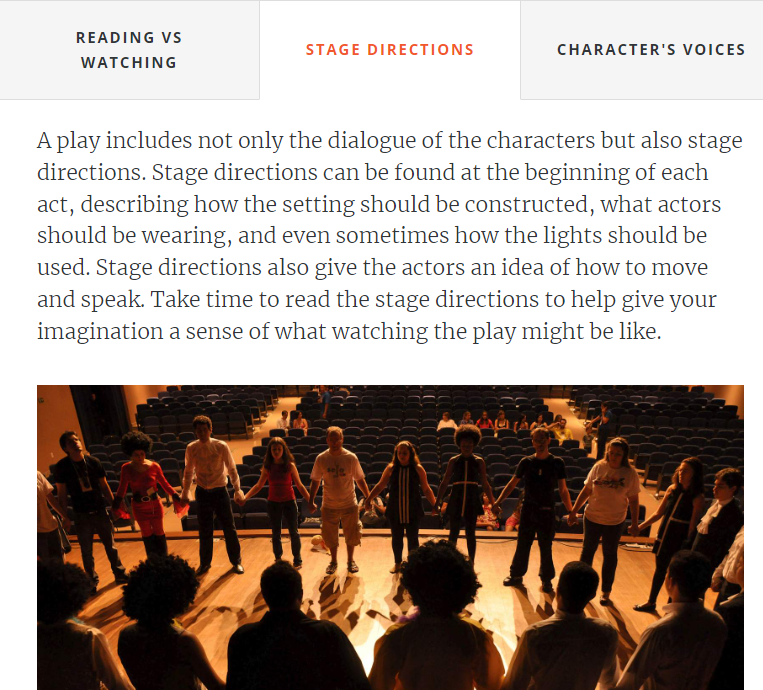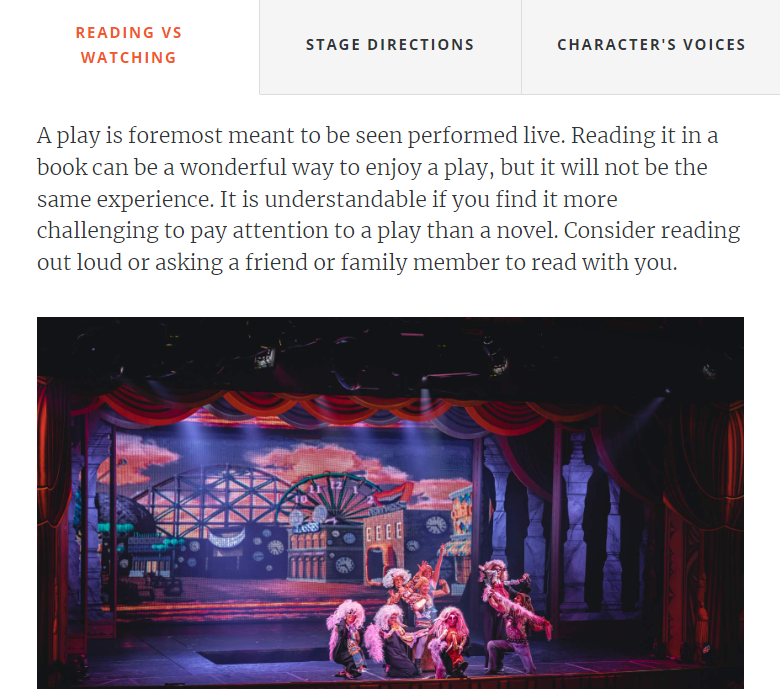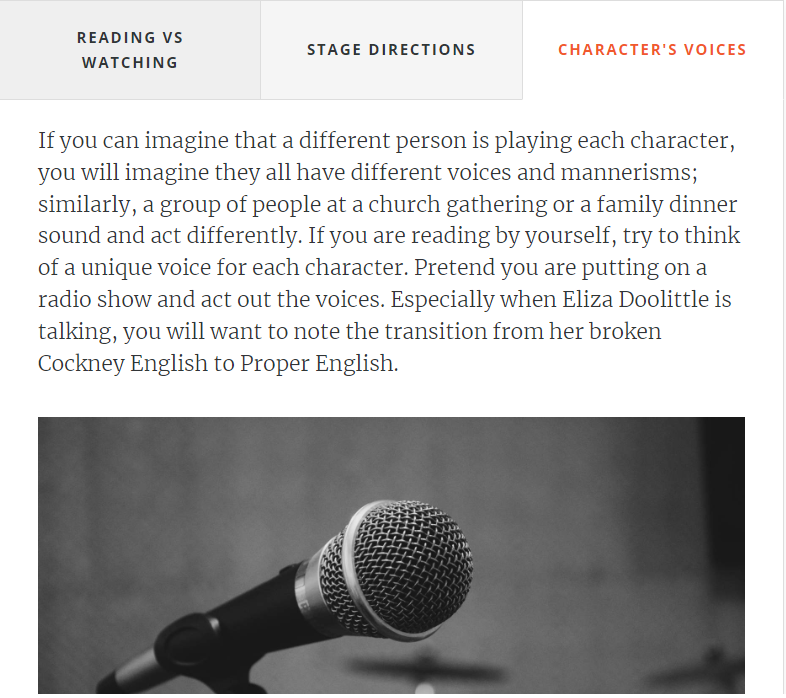Pygmalion, Act 1
Lesson Objectives
The student will read and analyze Pygmalion, Act 1.
The student will identify dramatic conventions and parts of a stage play.
Reading a Play
Before you get started with Pygmalion, it will be helpful to remember a few things:



Act 1
Act 1 begins in London, late at night, during a rain storm. A family leaving the church in Covent Garden is hunting for a can during a rain storm.
Pygmalion, Act 1
From Project Gutenberg
READ ACT 1(OPENS IN A NEW TAB)
Terms of Use, Project Gutenberg
Setting the Scene
The first scene in a play sets the tone and typically introduces at least a few main characters. The main conflict is also usually introduced within the first few scenes. Pygmalion begins in a typical London street outside of a church.
What do you notice about the characters? How does Shaw create a contrast between Freddy's family, the Flower Girl, and The Gentleman and the Notetaker?

The crowd, although seemingly annoyed by the Flower Girl's loud wailing, also is protective over her against the odd behavior of the Notetaker.
Why do you think the crowd is more sympathetic toward a flower seller than a rich gentleman? How would you react if you saw similar behavior?
Patterns of Speech
The Notetaker is later revealed to be Henry Higgins, author of "Higgin's Universal Alphabet" and a professor of phonetics, or the sounds of speech.
Do you think that a person's accent tells you something about them? If you live in the United States, you might know many different regional accents. People from Atlanta, Boston, New York, Denver, and Austin might sound extremely different, even though they are all Americans speaking English. Although it might be hard to distinguish the regional varieties in a language you don't speak, every language has them.
England is no exception! Although the national language is English, the accents around the United Kingdom vary across the country and are often tied to social status. Certain British accents are considered more noble and educated, while others are considered to be accents of the poor or stupid.
In Pygmalion, the Flower Girl, or Eliza, speaks with a cockney accent. This accent is associated with the working-class people of East London. Meanwhile, Higgins speaks with a more traditional academic, upper-class accent and bemoans her inability to speak "correctly."
Listen to this short interview with English actor Michael Caine as he discusses the social impact of using his Cockney accent professionally.
Accent bias can impact a person's career, even today. Some accents or patterns of speech are associated with low intelligence or inability to do complex tasks, even though the speaker might be totally capable.
Shaw uses this bias to set up the conflict in his play, saying:
You see this creature with her kerb-stone English: the English that will keep her in the gutter to the end of her days. Well, sir, in three months I could pass that girl off as a duchess at an ambassador's garden party. I could even get her a place as a lady's maid or shop assistant, which requires better English (Act 1).
The play will explore this proposition and invite you to consider if surface-level appearances and sounds are equal to a person's value. Some of the questions you can try to answer as you read are:
Can the refined, intelligent Higgins impart any wisdom and help on the poor, lowly, unintelligent Eliza?
Is Eliza actually unintelligent, or does she just sound that way to him?
Is she capable of learning and growing?
Is growth in language and manners going to be a positive change for her?
Also, as you read, consider the difference between how we assign value in society and how God assigns value biblically. When the prophet Samuel was looking for the new king of Israel, he was sure that one of Jesse's older sons, who were large and handsome, would be chosen. However, God had a different idea. "The Lord said to Samuel, 'Do not look on his appearance or on the height of his stature, because I have rejected him. For the Lord sees not as man sees: man looks on the outward appearance, but the Lord looks on the heart'" (I Samuel 16:7 ESV ®).
How do you think some of Shaw's societal concerns might be solved if we saw each other with God's eyes rather than society's biases?
Do you think there is a correct way to speak your language? Are there accents that are more or less acceptable in certain settings?